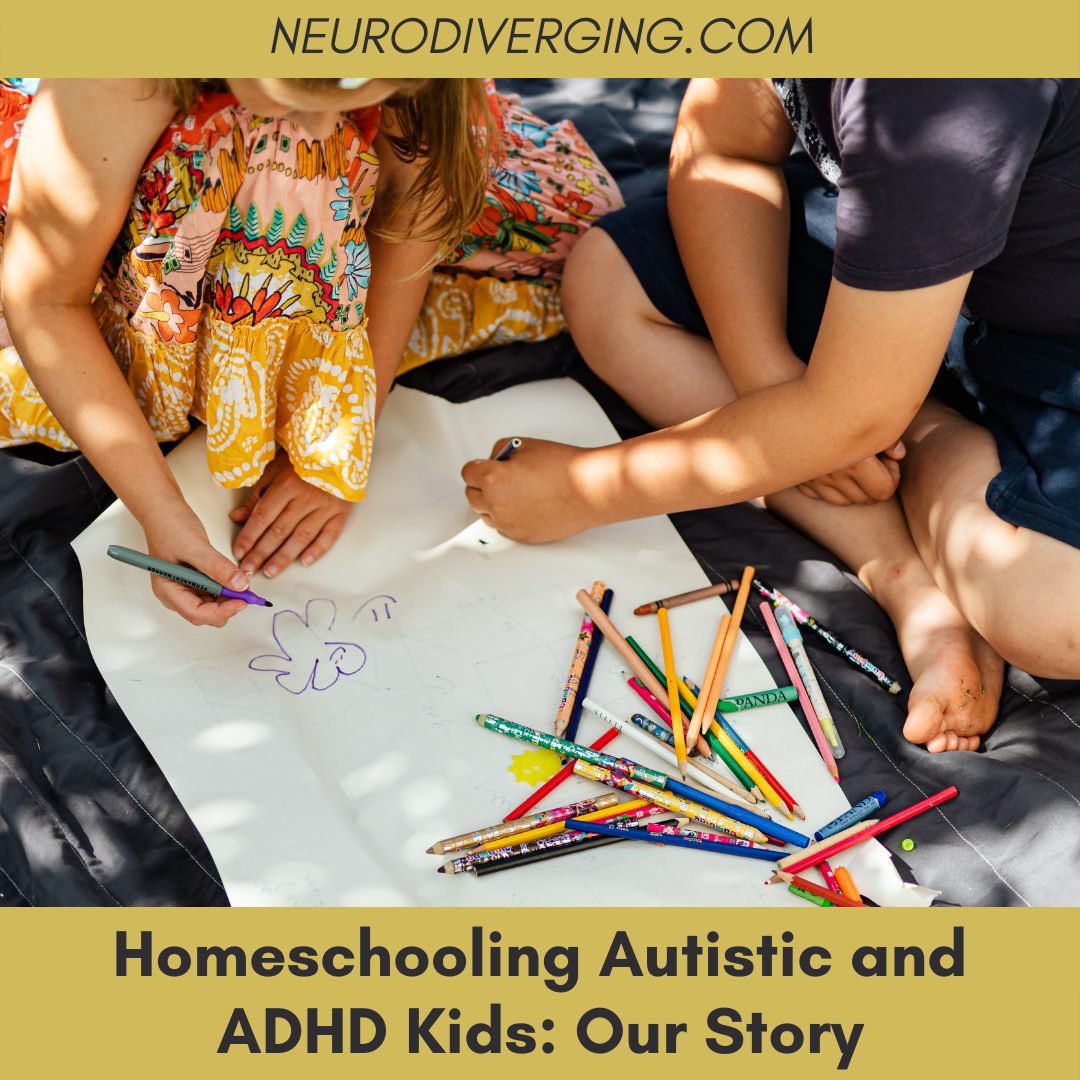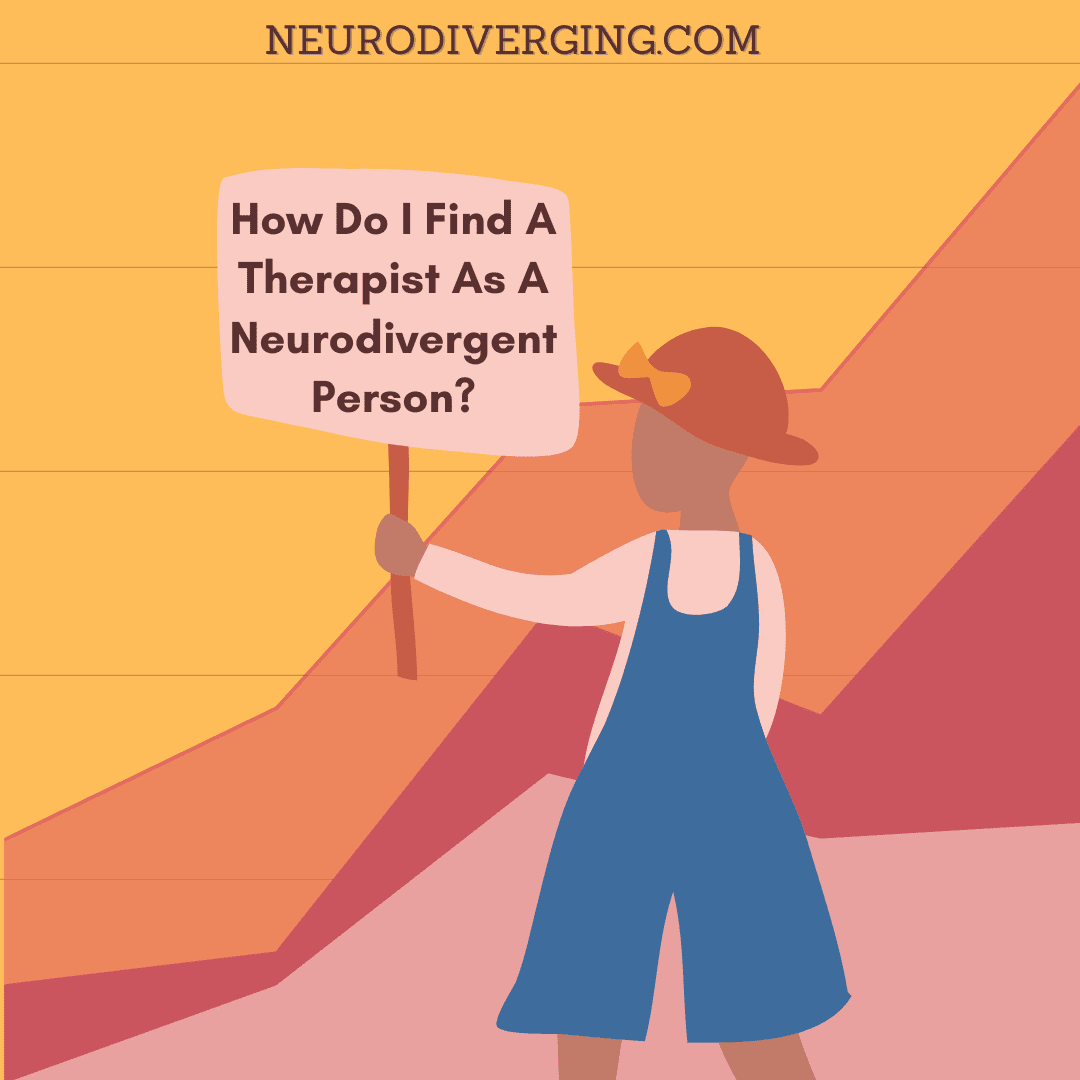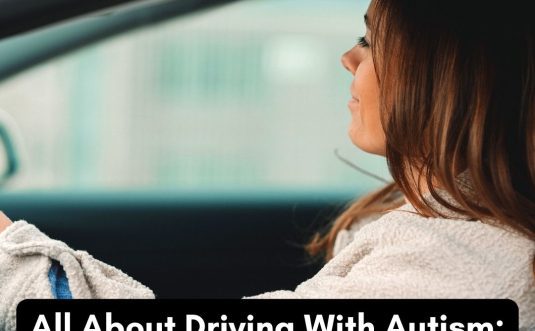 Welcome back! Today I’m here to tell you about my neurodiverse family’s experience homeschooling during the pandemic, why it’s working for us, and whether homeschooling is a good idea for families with disabled kids, or not!
Welcome back! Today I’m here to tell you about my neurodiverse family’s experience homeschooling during the pandemic, why it’s working for us, and whether homeschooling is a good idea for families with disabled kids, or not!
? Want to listen? This post is based off of Episode 37 of the Neurodiverging Podcast! Listen on Apple Podcasts | Spotify | Youtube
Want special access to the Patrons-Only Aftershow, and many other perks? Consider pledging $1, $5, or $10 a month to fund the Neurodiverging Podcast. Find out more and pledge today at patreon.com/neurodiverging.
Show Notes:
Check out our other episodes focusing on education and neurodivergence:
- Ep. 36 / Developing “Soft Skills” in Neurodivergent Youth with Lindsey Wander
- Ep. 35 / Autism, Literacy, and Educational Trauma with Lois Letchford
- Ep. 32 / How to Get Your Child Support at School with Laura Reber of Progress Parade
- Ep. 30 / Polymathy and Neurodivergence with Dustin Miller, PolyInnovator
- Ep. 24 / Auditory Processing Disorder at School with Suzanne DeMallie
- Ep. 23 / Interview with Clif Adkins, author of Martian: A Non-Science Fiction Guide for How to Love, Raise, and Possibly Be Someone Not Quite Human
- Ep. 21 / Raising Successful Neurodivergent Kids with Sally Willbanks of ND Renegade
- Ep. 11 / A Struggling, Undiagnosed Autistic Girl in the 1990s
- Ep. 08 / How ADHD Students of Color Suffer in American Schools
Works Cited:
Montes, G. (2006). Do parental reasons to homeschool vary by grade? Evidence from the national household education survey, 2001. Home School Researcher, 16(4), 11–17. https://www.nheri.org/home-school-researcher-parental-reasons-by-grade-level/
Duffey, G., & Jane (2002). Home Schooling Children With Special Needs: A Descriptive Study. Home School Researcher, 15, 1-13. https://www.nheri.org/home-school-researcher-home-schooling-children-with-special-needs-a-descriptive-study/
Montes, Guillermo (2015). The Social and Emotional Health of Homeschooled Students in the United States: A Population-Based Comparison with Publicly Schooled Students Based on the National Survey of Children’s Health, 2007. Home School Researcher, 31. https://www.nheri.org/home-school-researcher-the-social-and-emotional-health-of-homeschooled-students-in-the-united-states-a-population-based-comparison-with-publicly-schooled-students-based-on-the-national-survey-of-child/
Further Reading:
Nunes, Jackie. The Pros and Cons of Homeschooling a Child With Special Needs — and Some Resources That Can Help. The74Million. https://www.the74million.org/article/nunes-the-pros-and-cons-of-homeschooling-a-child-with-special-needs-and-some-resources-that-can-help/
Herman, Jenny. 10 Reasons Homeschooling May Be the Best Choice for Your Child with Autism. Autism Parenting Magazine. https://www.autismparentingmagazine.com/homeschooling-may-be-best-choice/
Cook, Sandy. Homeschooling Statistics : Learning Abled Kids’ Poll Data Results. https://learningabledkids.com/articles_about_homeschooling/polldataresultsforhomeschooling.htm
Brede, J., Remington, A., Kenny, L., Warren, K., & Pellicano, E. (2017). Excluded from school: Autistic students’ experiences of school exclusion and subsequent re-integration into school. Autism & Developmental Language Impairments. https://doi.org/10.1177/2396941517737511
(2017) A systematic review of the empirical research on selected aspects of homeschooling as a school choice, Journal of School Choice, 11:4, 604-621, DOI: 10.1080/15582159.2017.1395638
About Neurodiverging
Neurodiverging is dedicated to helping neurodiverse folk find the resources we need to live better lives as individuals, and to further disability awareness and social justice efforts to improve all our lives as part of the larger, world community. If you’re interested in learning more, you can:
- Click the subscribe button to make sure you are notified when there’s a new episode!
- Take a look around at previous podcast episode transcripts and blog posts here on neurodiverging.com. Looking for something specific or have a question? Send us an email at contact@neurodiverging.com.
- Check us out on Patreon to support this podcast and blog!
Speaking of Patreon, I would love to give a very, very warm thank you to Klara, Zach, Teresa L., Sara, Marti, Theresa B, Kristen, Galactic Fay, Claire, David, and Laura! Thank you all so much for supporting this episode of Neurodiverging!
Transcript of Ep. 37: Why We’re Homeschooling
Introduction
Hello everyone, and welcome back to the Neurodiverging Podcast. I’m Danielle Sullivan and I’m your host. Today I’m here to tell you about my neurodiverse family’s experience homeschooling during the pandemic, why it’s working for us, and whether homeschooling is a good idea for families with disabled kids, or not!
Before I get to that, I’d like to thank my patrons: Klara, Zach, Teresa L., Sara, Marti, Theresa B, Kristen, Galactic Fay, Claire, David, and Laura. Thank you all so much for supporting this episode of Neurodiverging.
If you want to be like these amazing folks and support Neurodiverging, please check us out on Patreon at patreon.com/neurodiverging. You can pledge a dollar, five dollars, or ten dollars a month to support the podcast and keep it going. Funding also goes to help me provide support for low-income neurodivergent coaching clients, so it’s very appreciated!
If you’re new here, I’m Danielle Sullivan. I’m the host of the Neurodiverging Podcast, and I am a certified life coach and an autistic person and parent. You may have noticed that we have spent the past couple of months discussing education for neurodiverse kids. We’ve talked to special education tutors, literacy experts, and parents about how public schooling has affected their autistic and ADHD children, and some of the issues or challenges they’ve had receiving needed supports for their kids. And, over the course of this podcast, we’ve talked to a couple of parents who have chosen to pull their children from public schooling and to homeschool instead.
Starting out in public school
As some of you know, I have two children, ages almost 7 + 9, and we are currently homeschooling them, or more specifically, flexi-schooling them. I’ll talk more about that shortly. My children were enrolled in the public school in our district in the United States and Colorado, and we were very happy generally with the quality of their education and their access to the supports they needed. One child had an IEP, and the other was on their way to a 504, which, for those of you unaware, are basically different official documents in the US school systems that organize and guarantee extra special education supports, interventions, and accommodations for disabled kids.
We have a huge amount of privilege in our schooling where we live in Colorado. Our district is well-financed. We have great teachers and educators who have a lot of knowledge around special education and disability, unlike most other school districts in the country.
Social well-being is a huge part of our school curriculum, especially in the younger grades, and some of the accommodations that are commonly requested for neurodiverse kids, like fidgets, extra time, extra support personnel, and the like are available to almost all kids in the classroom.
Even in these highly favorable conditions, my kids were struggling in public school. And when I say struggling, I don’t mean they were struggling in the traditional sense. They had friends in the classroom, they generally followed classroom rules, kept up on academic work, were kind and respectful to the folks working at the school, and communicated relatively well about what they needed. but even considering all that, they struggled to feel like they were doing a good job, and being good students, in the way that the school expected.
Internalized shame starts young
I try not to share anything overly personal about my children in order to protect their privacy, but I talked to my son about this and we decided it’s okay to share. My son is almost 9 now, and he is a fine reader. He is not devouring books the way I was at his age, but that’s more a difference in temperament than ability. He is roughly at grade level, maybe a little bit below, and completely average in terms of reading. He is a fine reader.
He attended public school preschool for two years, kindergarten, and first grade, and then was pulled out of second grade very early on to be homeschooled during the first wave of the Covid pandemic. He was on an IEP for all of those years and had support from an occupational therapist, a speech therapist, the school psychologist, and a special education team the whole time, but all the way back in kindergarten, he had developed the belief that he was a bad reader. In kindergarten!
Now some kids obviously can read beautifully in kindergarten, but I wouldn’t say it’s common or expected to have fluent readers at that age. Because of the way schooling is approached here, he looked around and saw that other kids weren’t getting the one-on-one attention he was, and they still seemed to be reading better than he was, and he developed a belief about himself and his ability as a learner that then caused significant anxiety, stress, and fear whenever he had to read. This was at age 6. By 6 years old, after only a couple of years in the school system, and again I want to stress, a wonderfully supportive school system with educators that honestly enjoyed him and supported him as a person and as a unique intellect, he still developed a mindset of doubt in his abilities.
Now, could he have stayed in the public school system and eventually reduced his reading anxiety enough to catch up? Well, maybe, sure! I don’t think any parent would say that, just because your kid hits a bump, you should automatically get in front of them and smooth out their path yourself. The bumps allow a child to develop resilience, grit, flexible problem-solving skills, self-esteem, community-building – all of these traits and abilities we want to build in our children.
But I was noticing these bumps, and talking to my son about them, and seeing his anxiety and this corresponding dip in self-esteem and his doubt that he could handle the academics, and it was so frustrating to me because he totally *could* handle the academics. But because the “special education” kids and the kids who needed more support were pulled out of class for that support, he felt alone. And that’s because he physically was alone, with the special ed team and one or two other students, while the rest of the classroom continued on with the lesson. So of course he thought “everyone” in class was “better” at reading than him, because he knew he was being singled out for extra help, and he didn’t see his other classmates learning and struggling along with him.
Schools aren’t equipped to handle ADHD
And that’s just one of my children’s experiences. My daughter is identified with combined type ADHD, which means she has the inattentive type and the hyperactive type. She needs a lot of movement, a lot of stimulus, shorter lessons, extra breaks, and she does better and feels more comfortable in one-on-one learning environments with lots of check-ins from the educator.
Because ADHD isn’t a disability under the Americans with Disabilities Act, she wasn’t eligible for an IEP, which means she wasn’t eligible for any therapies or special education services through the district, so she had no access to the school’s occupational therapist, even though we knew that OT helped her significantly. We could have received some accommodations with a 504 plan, but whether she actually got those accommodations would mostly depend on follow-through from the classroom teacher, who is already way too busy with general classroom management. My daughter wouldn’t have a dedicated team to help her in public school.
Homeschooling at the beginning of the pandemic
In March 2021, when the covid pandemic hit the US and everything closed down overnight, I immediately started homeschooling. My kids thrive on routine and a lot of one-on-one time with me and their dad, and I knew that losing their school routine would cause a lot of behavioral outbursts from them just because of the stress and anxiety they’d undergo from suddenly being unable to predict their day-to-day lives. I kept it simple and just focused on math, literacy and science in short bursts throughout the day.
Once school restarted online later in the spring, we gave it our best shot, but it was just not a fit for our family. The kids were too young to be tech-literate enough to follow what they were supposed to be doing when. I barely knew where all the log-in information for all the programs was. My daughter flat out refused to come to the computer for kindergarten except for the songs that they did for opening in the morning and closing in the afternoon. My son really tried and enjoyed seeing his friends and his teacher, but became overwhelmed by the busy screen and sitting for long periods and started to get anxious again.
We made it through and started summer break, and I started thinking about what to do for the following fall when they were supposed to return to school. Attending public school live had been tolerable for them, but not great. Attending online was absolutely not working for anyone, including me. Could homeschool work for us?
Doing the research
I’m lucky enough to work from home, and I like and have experience teaching, so it wasn’t as much of a stretch for us as it is for many families. I’ve had the most practice at dealing with my son’s anxiety and my daughter’s “oppositional defiance,” which isn’t actually defiance but a mix of anxiety, inflexible thinking, and needing more time to think. But what about my kids’ social development? Their academic growth? Would I be depriving them of anything by removing them from public schooling, even if it was being delivered via online learning platforms and Zoom meetings during the pandemic?
You all know I try to make evidence-based decisions, so I did the research.
First, I looked into why most homeschooling parents pull their kids out of public school in the first place. What are the most commonly cited reasons for that homeschooling decision to be made?
One older study (Montes, G. (2006)) looking at data from 2001 investigated what US parents said about why they took their children out of public school by asking parents open-ended questions and then categorizing those responses into groups by reason. Here’s what they found: “Homeschooled students are educated at home [because]… parents believe they can provide them a better education (47%) and for religious reasons (41%).” About a quarter of parents also cited “poor learning environment at school” as a reason for homeschooling, about 17% said that public school was not challenging enough for their child, and almost 9% said their children were homeschooled because their child was disabled.
Another study ( Duffey, G., & Jane (2002)) published in 2000 focused on why US parents chose homeschool for their “special needs” or disabled students (mostly students with diagnoses of ADHD, learning disabilities, pervasive developmental delay, and speech and language impairment) by asking open-ended questions to about 100 parents: “The majority of survey parents (62%) turned to home schooling when dissatisfied with conventional schooling. Parents cited this reason more than twice as much as the next two reasons: home schooling is consistent with family dynamics (27%) and a desire to follow and teach religious values (26%).”
Our family is not religious, but outside of that, all of these responses resonated strongly with my own feelings about my kids’ experiences in public school. When we talked with Lois Letchford in the autism and literacy episode a couple of weeks ago, we discussed how children, and humans in general, need to be relaxed and in a curious state of mind in order to learn. Anxiety, stress, and overwhelm cause that adrenaline response that inhibits curiosity and learning. My kids were experiencing that adrenaline response in the classroom, but not at home. I did think I could provide them with a better education than the school could, or certainly at least a more accessible one, which amounts to the same thing.
Then I looked into some of my concerns about homeschooling. Are homeschooled kids successful in the long-term? Do they have poorer social-emotional health? What about college and job placement? Here’s what I found:
One literature review, which is basically a summary of existing research, pulled together research on homeschool students’ social engagement, and said, “researchers have shown that homeschooled students participated in more activities than children attending conventional school, and that homeschooled children actively participated in myriad forms of community activities from organized sports, scouts, volunteer and paid work, church activities and a whole variety of community offerings from dance and visual arts to hobby-related groups. Furthermore, as adults, homeschooled children are active participants in civic life, being more likely to work for political candidates or causes, attend public meetings, participate in protests or boycotts, vote in elections, and contribute money to political candidates than the general population” (Montes, Guillermo (2015)).
That same study then looked specifically at the social-emotional health of homeschooled kids by using data from the National Survey of Children’s Health 2007, which is a large survey of randomly-sampled families collected by the US government to monitor the health of American children. That survey could then be used to provide nationally representative estimates of the condition of homeschooling children and their families in the United States, so the resulting study was based on more than 55,000 students, of whom about 1,500 were homeschooled.
The author concluded, “It was surprising that this study revealed almost no systematic differences in the social and emotional health of homeschooled students in the United States… Thus, the main conclusion of this study is that homeschooled students in the US have comparable mental and emotional health and comparable community participation to their publicly schooled counterparts, even though their households are less affluent. There is no evidence that homeschooled students are at greater risk of socialization problems than publicly schooled students in the US.”
The only other finding from this study that’s of interest is that, “homeschooled students were substantially less likely than publicly schooled students to be rated as arguing too much… This is somewhat remarkable because homeschooled students spend substantially more time with their parents than publicly schooled students. Homeschooled students must negotiate with their parents an additional set of complex educational tasks (e.g. curriculum, instructional practice, homework, balance between educational work and community activities, etc.). Thus, it was a positive finding to find out that they are able to accomplish these additional complex educational tasks and additional interaction time and yet argue less.”
My personal, perhaps optimistic, hope after reading that is that homeschooled students might have better relationships with their parents than average, just because the amount of time spent together might have built stronger communication skills and positive family bonds, but that’s just conjecture!
Making the change
I read as many studies as I could find on this topic, and the general consensus seems to be that most homeschooled children end up doing fine. Academically, socially, emotionally, in all spheres that matter, they develop the same skills as conventionally-schooled kids.
So, after talking to my kids, my co-parent, and doing all the research, we obviously ended up homeschooling. We’re in our second full year and honestly, I love it. Everyone’s a lot more relaxed, everyone’s learning. The kids are able to follow their own interests and I’m able to adapt what we do to follow them. We get outside more. We do field trips. We joined our local Navigators scouting club and found a forest school that can offer them relatively Covid-safe interaction with other kids once a week. I definitely had some rearranging to do with work and figuring out how to balance everything, but our days are pretty smooth overall. Everyone’s happy.
Will I continue to homeschool once the pandemic winds down, though? I don’t know. Although I feel confident and secure in my decision under the current circumstances, and although I’m certain my children are learning more and building skills faster than they would in a pandemic-altered conventional school setting, I still have doubts long-term. And those doubts basically boil down to: is removing disabled kids from the conventional school classroom in everybody’s best interest?
I don’t think it is. So, next show, I’ll be back to talk about why disabled kids should be integrated into conventional classrooms, and what could be improved in school classrooms to make them more inclusive for everybody, so people like me and my family can feel more confident and supported in the classroom!
Conclusion
Thank you for being here with me today. If you’ve enjoyed this podcast, please let me know! Leave a comment or email me: contact@neurodiverging.com. I would love to hear from you. Show notes and further reading are available at neurodiverging.com. Thank you again to my patrons for supporting this podcast and everything we do at Neurodiverging – you guys are wonderful! Join us at patreon.com/neurodiverging, and I hope to see you there. Please remember, we are all in this together.

 Danielle Sullivan
Danielle Sullivan


